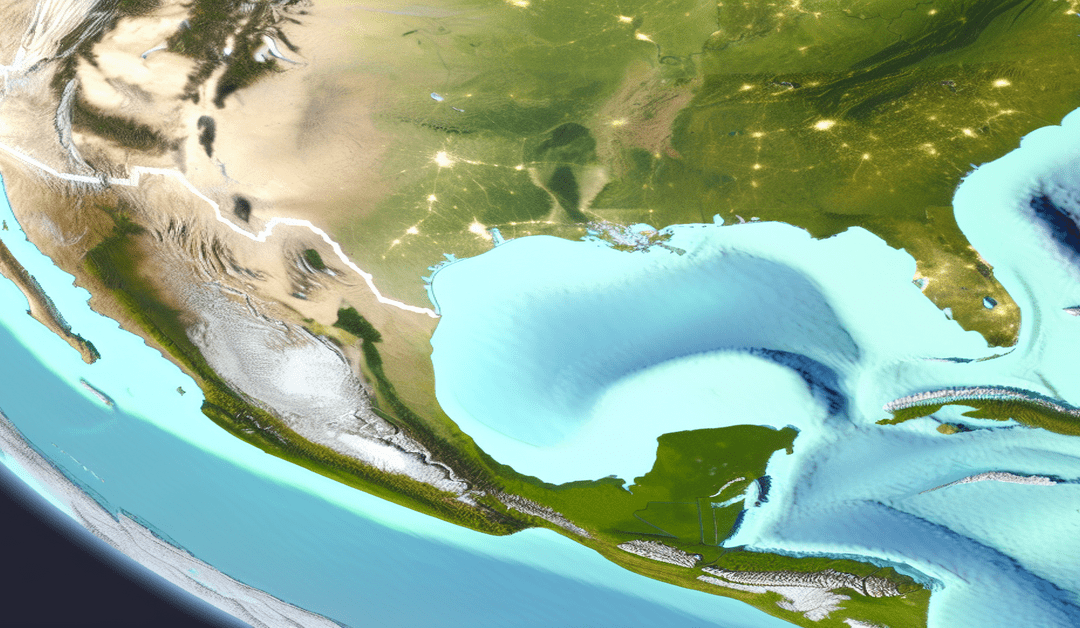Google Maps Renames Gulf of Mexico to Gulf of America: A Reflection of Geopolitical Shifts
In a surprising move that has sent shockwaves through the international community, Google Maps has updated its maps to reflect the name change of the **Gulf of Mexico** to the **Gulf of America**. This change comes on the heels of an executive order by U.S. President Donald Trump, who announced his intention to rename the Gulf during his inauguration. The update, which affects almost all Google Maps users worldwide, is a testament to the far-reaching influence of geopolitical shifts and the role of technology in shaping our understanding of the world.
Global Visibility: A Name Change with Far-Reaching Implications
The name change from the Gulf of Mexico to the Gulf of America is not just a matter of semantics. It has far-reaching implications for how we perceive and interact with the world around us. For users in the U.S., the name “Gulf of America” will be displayed prominently on Google Maps, while users in Mexico will continue to see “Gulf of Mexico.” Everyone else will see both names, highlighting the complex geopolitical and cultural sensitivities at play.
This change is not just limited to the Gulf of Mexico. Google has also updated the name of the highest mountain peak in the U.S. from Denali back to Mount McKinley, following President Trump’s orders. These changes reflect a broader shift in U.S. foreign policy and a desire to assert American sovereignty and influence on the global stage.
Government Order: The Power of Executive Action
The renaming of the Gulf of Mexico to the Gulf of America was initiated by President Trump, who announced his intention to rename the Gulf during his inauguration. This move aligns with his broader policies and initiatives, which have often been characterized by a desire to assert American power and influence on the global stage.
The fact that a single executive order can have such a profound impact on how we perceive and interact with the world is a testament to the power of government action. It highlights the need for careful consideration and deliberation when it comes to making decisions that can have far-reaching implications for millions of people around the world.
Reaction: Navigating Complex Geopolitical and Cultural Sensitivities
The reaction to the name change has been mixed, with some praising the move as a bold assertion of American power and others criticizing it as a unilateral decision that ignores the cultural and historical significance of the Gulf of Mexico.
The Associated Press, for example, has announced that it will continue to use the original name, “Gulf of Mexico,” while acknowledging the new name. This decision reflects a desire to maintain journalistic integrity and independence in the face of political pressure.
Other mapping services, like Apple Maps, have also begun implementing similar changes, highlighting the need for a coordinated and consistent approach to navigating complex geopolitical and cultural sensitivities.
The Future of Mapping: Balancing Accuracy and Sensitivity
The renaming of the Gulf of Mexico to the Gulf of America raises important questions about the future of mapping and the role of technology in shaping our understanding of the world.
On one hand, there is a need for accuracy and consistency in how we represent the world around us. Google Maps, for example, has a responsibility to ensure that its maps are up-to-date and reflect the most current information available.
On the other hand, there is also a need to be sensitive to the cultural and historical significance of certain names and places. The Gulf of Mexico, for example, has a rich history and cultural heritage that cannot be easily erased or ignored.
Balancing these competing priorities will require careful consideration and collaboration between technology companies, governments, and civil society organizations. It will also require a willingness to engage in open and honest dialogue about the complex issues at stake.
Conclusion: A Call to Action
The renaming of the Gulf of Mexico to the Gulf of America is a reminder of the power of geopolitical shifts and the role of technology in shaping our understanding of the world. It highlights the need for careful consideration and deliberation when it comes to making decisions that can have far-reaching implications for millions of people around the world.
As we navigate this complex and rapidly changing landscape, it is important that we remain committed to accuracy, sensitivity, and open dialogue. Only by working together can we ensure that our maps and our understanding of the world reflect the rich diversity and complexity of the human experience.
#GoogleMaps #GulfOfAmerica #Geopolitics #Mapping #TechnologyAndSociety
-> Original article and inspiration provided by Josh Campbell, CNN
-> Connect with one of our AI Strategists today at ReviewAgent.ai

